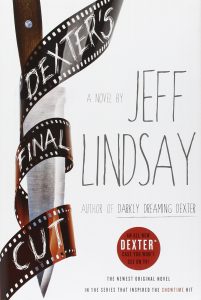 A really long time ago, when I bought Dexter’s Final Cut (at Half-Price books per uzh, back when I went book shopping just for fun, since I hadn’t yet bought all the Deathlands books and also there wasn’t a multi-year global pandemic yet[1]), I remember thinking that it was, you know, the last book. There’s a clear implication! Later, there was one more book which had an even more final title, and a new one hasn’t happened since then, so I accept.
A really long time ago, when I bought Dexter’s Final Cut (at Half-Price books per uzh, back when I went book shopping just for fun, since I hadn’t yet bought all the Deathlands books and also there wasn’t a multi-year global pandemic yet[1]), I remember thinking that it was, you know, the last book. There’s a clear implication! Later, there was one more book which had an even more final title, and a new one hasn’t happened since then, so I accept.
Anyway, those two books, the only ones of the series I bought in hardback, have been staring at me for many years now, and I finally thought to myself, self, start finishing your serieses that are sitting on your to-read shelf. Like, take advantage of the lack of making it get bigger to make it get smaller! And that seemed like pretty good advice, so I grabbed it after all those years, and I read it, and haha it’s actually a pun on him being attached as advisor to a new cop show being filmed in Miami. Characters include the really annoying popular actor, the salty comedian who hide darkness behind his jokes[2], the impossibly, ethereally beautiful actress who is nevertheless just a smidge past her Hollywood prime, oh, and the serial killer who has been stalking her for months.
The intersection of Dexter with these new characters went in a very different way than I expected, and in fact some latent humanity that has never before been present was awakened, and under other circumstances I think I’d very much want to talk about these things in a spoilery fashion, because they made a lot of sense despite being unexpected, and that kind of emergent character development is of great interest to me. (Plus I’d get to riff again on how he’s not nearly as smart as he thinks he is, aspects of which make the series a lot more comedic than I’d have guessed it would be, back on day one.)
But instead I’m just sad, because while pulling up the link on Amazon, I saw an unfamiliar title, and goddammit, I skipped a book. So I’ve just read the next to last book in the series, which ended on a pretty badass cliffhanger to boot, and… I need to go read book six instead.
Ugh. This has never happened to me before, I swear. (…except for the time I read Wishsong of Shannara not realizing it was the third book in a trilogy, but I was like 12 then.)
To recap: ugh.
[1] One of these is no longer true, and the other one is sort of semi-over, except for, you know, small children (of which I have like one and a half) who are not presently capable of immunization.
[2] You know, like every comedian. Also, he wasn’t very funny? Which I blame on the author, who is good at situational humor but not good at spoken humor. (Or maybe the comedian wasn’t supposed to be funny? But the remainder of the text doesn’t bear out that reading.)
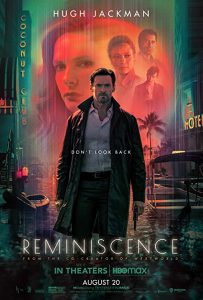 It’s not really clear to me what Kevin Feige is going to do when he tries to introduce the X-Men into the MCU. Not only has Hugh Jackman refused to play Wolverine again, but he apparently got the mutton chops in the divorce with Fox. Seriously, bro looks within an approximation of no differently than he did in 1999.
It’s not really clear to me what Kevin Feige is going to do when he tries to introduce the X-Men into the MCU. Not only has Hugh Jackman refused to play Wolverine again, but he apparently got the mutton chops in the divorce with Fox. Seriously, bro looks within an approximation of no differently than he did in 1999.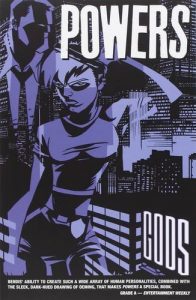 This is the last book in the Powers series!
This is the last book in the Powers series!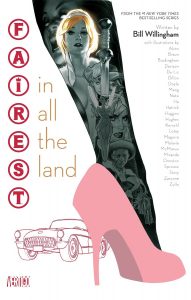
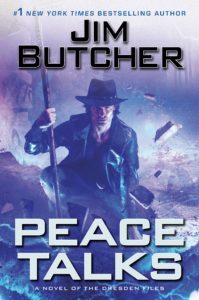 The first thing to say about the new Dresden Files book is, unfortunately, damned near the only thing to say about it.
The first thing to say about the new Dresden Files book is, unfortunately, damned near the only thing to say about it. 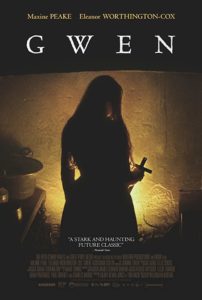 So there’s this movie called
So there’s this movie called 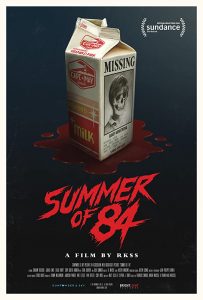 I watched another movie this week, which was
I watched another movie this week, which was 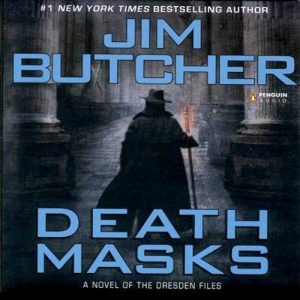 So, uh, massive spoilers for not so much this book but for the entire series through Peace Talks, which is not yet published as of this review. Don’t read farther unless you don’t mind.
So, uh, massive spoilers for not so much this book but for the entire series through Peace Talks, which is not yet published as of this review. Don’t read farther unless you don’t mind.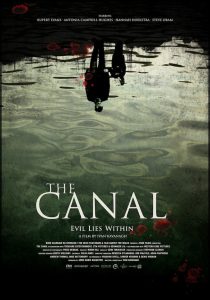 When I started thinking last night about my review of
When I started thinking last night about my review of 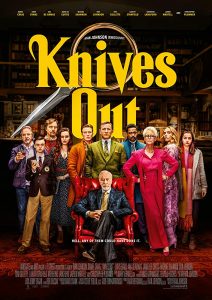 As you cannot in any way ascertain from my shoddily maintained review site, it’s been a little while since I saw any movies, and so when Thanksgiving and its multiple days off and/or light work load came along, it thusly became movie time. Of course, that’s been nearly a week, so I can not remember what other movies were in contention anymore, only that what we actually saw was
As you cannot in any way ascertain from my shoddily maintained review site, it’s been a little while since I saw any movies, and so when Thanksgiving and its multiple days off and/or light work load came along, it thusly became movie time. Of course, that’s been nearly a week, so I can not remember what other movies were in contention anymore, only that what we actually saw was